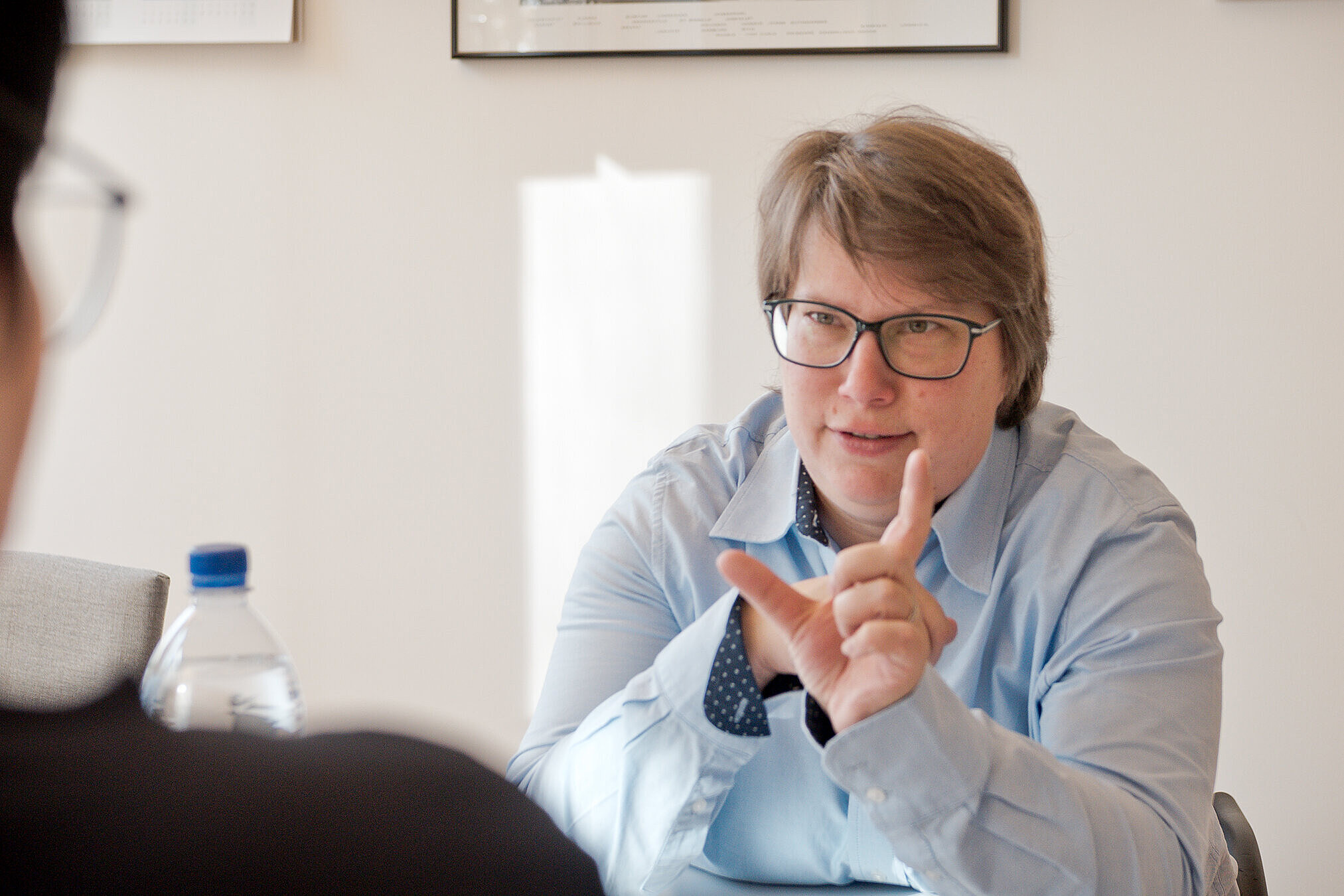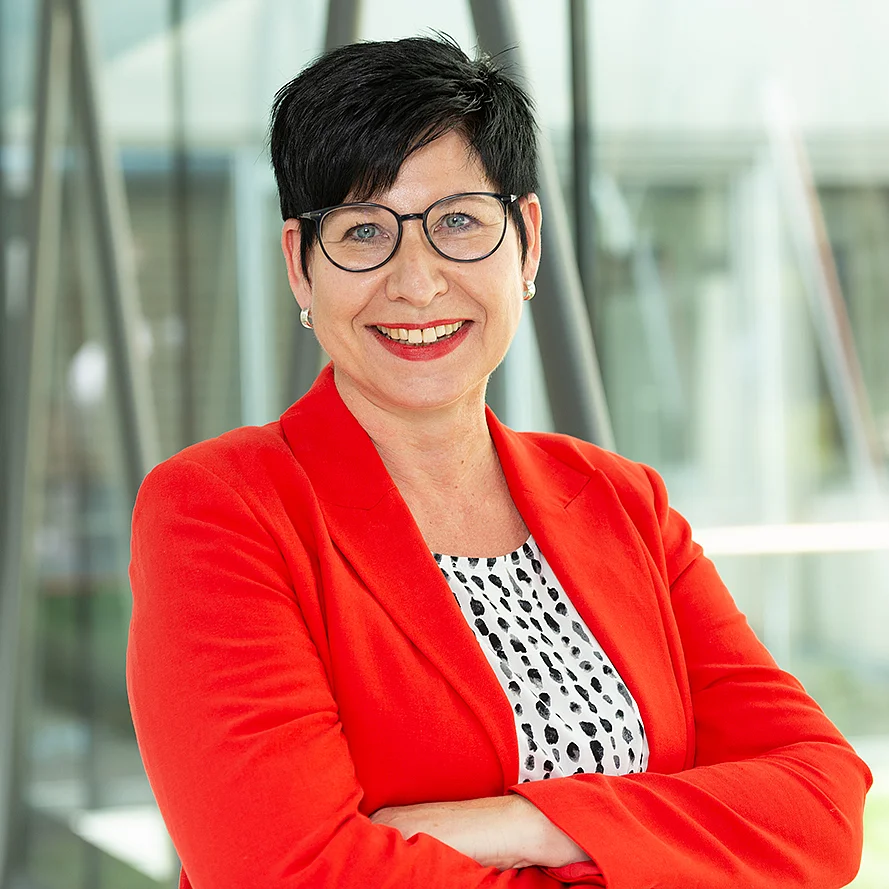Mrs Tannapfel, how did you become aware of the HZI?
Although I grew up in Lower Saxony and spent most of my legal internship in the Hannover/Hildesheim region, I did not become aware of the HZI until 2014, when the Helmholtz Institute for RNA-based Infection Research (HIRI) was founded. After a first meeting with Jörg Vogel of the HIRI and other leaders of the University of Würzburg, who basically raved about the HZI, I quickly gathered more information and was very impressed by the positioning of the Helmholtz centre in Braunschweig.
What made you interested in becoming the administrative director?
The answer is the link of Helmholtz and infection research as well as the people. Infection research is one of the main public health challenges facing society. I perceived the Helmholtz centres to some of the more dynamic facilities in my field of responsibilities. Helmholtz is distinguished by cooperation and really is the load-bearing spine of the German science system – to phrase it in medical terminology. Here, I would like to make an active contribution together with the responsible individuals at the centre, who I got to know and appreciate during the founding process of the HIRI.
Was has been the largest professional challenge thus far?
In Bavaria, I was responsible for the Helmholtz, Max-Planck and Leibniz facilities in the state. One challenge was to rehabilitate a life-threatened Leibniz facility in 2016/17. I'm particularly proud of founding a Max-Planck-Institute in Erlangen, which I was in a position to support – starting from a small group of researchers through the foundation of the institute and the later expansion of the centre. Upon the establishment of the HIRI in Würzburg, both major research organisations were present in Franconia and it was time for me to look for new challenges.
Which "lessons learned" at the Ministry are you bringing along with you?
I really got a good helicopter view of the German research landscape, its strengths, key success factors and pitfalls. Moreover, the state of Bavaria invests a lot of money and time into continued education measures for the development of organisation and personnel; many of my superiors were good role models for which I am very grateful. Patience or restraint are not part of the Bavarian ministerial bureaucracy. In my view, the HZI could be much more self-assured and more resolute in appearance and manner, especially in terms of funding.
How do you perceive the HZI?
To me, the HZI seems like a powerful home with a low-key attitude. On my first day, I was greeted at the gate by a vernacular exclamation of "Real shitty weather!" – which sounded very much like home after nearly twenty years in Bavaria. The Science Campus Braunschweig-Süd is very impressive due to its modern buildings and the cooperation of the broad range of actors. This is quite unique in Germany and we can be proud to present it to the public. Our staff restaurant is another important place. I go there regularly and can be approached there. Attentiveness to the staff is very important to me. I do not want the staff to have more problems after a conversation with me than before.
How do you like Braunschweig and Wolfenbüttel?
Braunschweig seems to have the optimal size for a science city in my mind, not too small and not too large to make it difficult to know and help each other. I have tried some of the restaurant scene in Wolfenbüttel and found some favourite places there. The old town architecture is calming in a pleasant way, simply: it feels good. I buy into the slogan of the Eintracht Braunschweig fans: "Love knows no league." Being a member of the Werder Bremen club myself, I am also used to suffering. I look forward very much to the museum landscape of this region once I have more time for it.
How do you balance your stressful job in your leisure time?
Long walks in the fresh air with our family dogs – Weimaraners – help me relax. And I can chill really well with good books and I am enthusiastic about old mechanical clocks, which I repair myself sometimes.
Interview by Susanne Thiele
Published: December 2017



